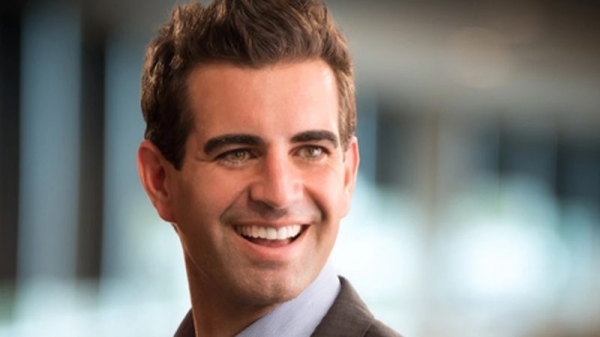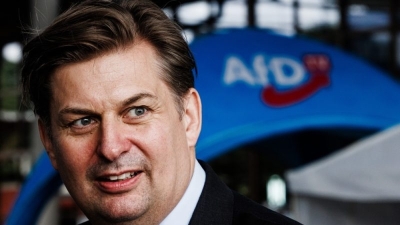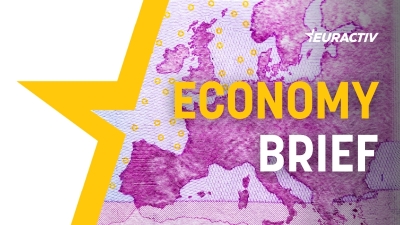Reducing regulatory data protection isn’t a successful strategy, says Roche Netherlands GM

Reducing regulatory data protection and limiting intellectual property rights isn’t a successful strategy, says Roche Netherlands’ General Manager, while encouraging the Dutch government to follow Germany with a pharma strategy summit.
As the European Parliament starts to consolidate its position on the proposed new pharmaceutical legislation, Euractiv spoke with Andrew Plank, General Manager for Roche Netherlands.
While the European Commission is proposing an overall reduction to Regulatory Data Protection, with a two-year extension for products launched in all member states within two years of marketing authorisation, insisting it will increase access to patients, pharmaceutical companies are still sceptical and continue to highlight how important such protections are in stimulating investment in innovative drugs.
“There’s absolutely no compelling evidence, given the risk and costs of new innovation, that eroding incentives is going to foster the development of new medicines or address any national patient access gaps,” Plank said, adding that the average cost of bringing a new medicine to market currently lies between $2.4 and $3.2 billion.
The Netherland’s stance
Plank said he would encourage the Dutch government to follow in Germany’s footsteps after Germany held a pharma strategy summit (Pharma 4.0 Summit) where companies and the government discussed their positions.
“The outcome was one that was co-created together publicly and privately. That does a couple of things. It builds trust, likely ensures that all positions are heard and valued, and it gives you an outcome where all parties are committed to it,” said Plank. He added that Roche would “absolutely be a willing participant” were a similar initiative to take place in the Netherlands.
For Plank this ties in with his belief that there’s no need to even wait on new pharmaceutical legislation. There are opportunities and ideas in Europe today that countries such as the Netherlands could immediately learn from.
Healthier lives, not a cost but an investment
Plank also hopes that successful public and private partnerships will lead to another desired outcome of his – that the government and society view innovative medicines as an investment rather than as a cost.
“Cost containment is important, but we have to appreciate that investment in cutting-edge medicine and technology will absolutely deliver improved societal impact, economic benefits, and will definitely help keep Europeans healthier and happier for longer,” said Plank, “and that’s a pretty substantial mindset shift.”
However, with high medicine prices a daily reality for many in Europe and researchers looking into more sustainable pricing models, it’s clear that efforts have to be made by all parties, including large pharmaceutical companies such as Roche. Would they be willing to rethink their closed-door negotiations with governments on pricing?
“I think transparency is a good thing. I think people need and deserve to understand what is being paid for and why and to understand the total value that those things provide to society,” Plank said. Emphasising that this should especially be the case in healthcare systems primarily funded by taxpayers.
According to Plank, transparency builds trust which will then bring about more open and honest negotiations.
However, in terms of a common price for medicines in the EU, Plank says this wouldn’t necessarily improve patient access to the medicines they need. He referred back to the potential of collaboration as something that could help with this access.
In 2022, the European Federation of Pharmaceutical Industries and Associations (EFPIA) reported large discrepancies between the waiting times patients have to endure in different EU countries, around 133 days in Germany to access new medication compared to 899 days in Romania. The Netherlands lies among the better-performing countries, but Dutch patients still face a wait of 294 days.
“It can be incredibly slow in some cases…so when you have patients and families in need, that is too long,” Plank said. In his view, the Dutch Association of Innovative Medicines (VIG) brings a collaborative mindset to wanting to work with the government across all ministries and agencies to reduce patient waiting times.
Now’s the chance to get it right
It’s something the industry cannot deliver on its own, according to Plank, who sees an opportunity for the Dutch healthcare system, which does not have early access programmes for breakthrough innovations, to emulate “other Western European countries like France and Germany where access can be immediate.”
“I think the other thing I would say is that at Roche, we’re definitely concerned that European policymakers seem to believe that the problem and challenges with access can be fixed with legislation alone,” Plank said, highlighting again the importance of public-private partnerships.
For Plank, a reimagined healthcare landscape would be one with forward-looking policies that champion innovative technologies, a transition from what he describes as outdated price volume models to more efficient models that reward innovations that are riskier to pull off but that will serve the greatest patient and societal unmet needs.
Plank said that, ultimately, it’s important the EU gets it right when transforming its pharmaceutical landscape.
“These are the most significant changes we’ve seen in many many years, and the positive impact or negative consequences thereof will be long-lasting,” he said.
[By Christoph Schwaiger, Edited by Vasiliki Angouridi, Brian Maguire| Euractiv’s Advocacy Lab]
Read more with Euractiv




